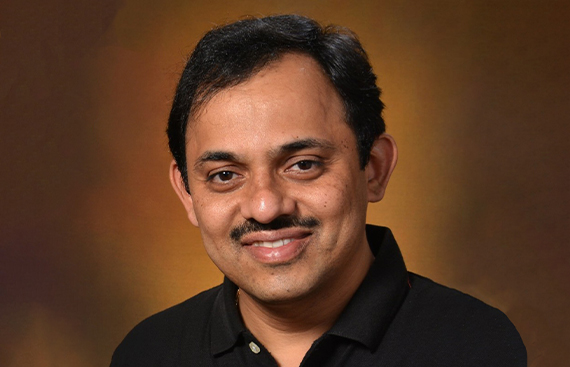Startup Ecosystem in India - Present Scenario & Future Prospects

Having completed his Mechanical Engineering degree from PES College of Engineering, Mandya, Sudarshan boasts of close to a three decade long career during which he has been associated with ISRO, Geometric and 3DPLM Software Solutions, prior to establishing Dassault in 2012. In a recent conversation with Siliconindia, Sudarshan Mogasale, CEO, Dassault Systemes Solutions Lab shared his insights on various aspects pertaining to the current startup ecosystem in India. Below are a few key extracts from the exclusive interview
How do you see the startup ecosystem reshape itself in India post the covid pandemic?
While covid did have an adverse effect on all industries and their functions, it also accelerated the digital transformation across almost all industries. This has in turn created humongous opportunities for startups in our country and also given rise two classes of startups – pre-covid and post-covid startups. While many early stage startups collapsed during the pandemic due to the ensuing nationwide lockdown and lack of business, those who successfully managed to stay afloat amidst the crisis grew to become more resilient and successful.
One of the biggest shifts post covid the diversification of domains. While most of the startups before covid were from the usual regular verticals such as finance, edtech and e-Commerce, posy covid era led to rise in number of startups across many other industries such as healthcare and agritech that have become mainstream post the pandemic. Also, unlike the pre-covid era where startups majorly took birth in metros and tier-I cities, there has been a significant increase in the number of startups being established in many towns and smaller cities post the pandemic, which is a very good development for Indian economy.
Throw some light on the various challenges that Indian startups are currently facing, and ways in which they can be overcome.
While all startup challenges remain the same worldwide, they are of a more serious nature in India. Usually, Indian startups operate in a constrained environment due to lack of adequate resources, limited human capital, very short time-to-market and a lot more. These factors pose a bigger challenge to product startups since creating a physical offering demands many critical resource requirements. To overcome these challenges more efficiently, startups need to adopt modern day digital technologies, especially virtual twins, which enable them to optimize their entire process cycle and offer improved customer experience.
Poor execution is the second biggest challenge that startups today are facing globally. The success of every startup irrespective of the industry it is in depends 10 percent on the idea and 90 percent on the execution of that idea. This is one of the major reasons why many startups fail despite having an out-of-the-box idea. For successful execution every idea, it is paramount for organizations to adopt latest technologies, have tight governance, and most importantly, carry a positive mindset. Thirdly, access to target customers is another critical challenge startups in India are currently facing. Technology acts as a true enabler in this regard by enabling companies to analyze customer data, derive valuable insights, and accordingly build a prototype/MVP. This way, startups are able to save-up on a lot of time and resources, while simultaneously catering to all customer needs.
What are some of the factors every startup founder must keep in mind while pitching for investors and VCs?
Firstly, you must have a clear understanding of every aspect of your product while approaching investors. The way in which you present your MVP to the investors/VCs will have a very big impact on whether your request for funding is accepted or rejected. Thus, it is paramount for the entrepreneur to clearly explain critical aspects such as target customers, differential factors and profit model to the investors. Another key factor that every investor looks in a startup seeking funding is the experience that its team members and the management bring to the table.
What role are the government and policymakers playing in nourishing the startup ecosystem in the country?
These are very encouraging times for startups in India, wherein both state and central governments are leaving no stone unturned to support and nourish startups in the country. Some of the steps they have taken in this regard are the launch of various initiatives like Startup India, offering tax benefits to the startups, easing policy regulations pertaining to business setup, giving them access to CoEs for hassle-free innovation, setting-up startup incubators & accelerators and many others. Atal Incubation Mission is another key enabler by the government to assist startups across the country, wherein there are over 10,00o Atal Tinkering Labs at school levels and 100+ incubation centers across India. Some of the other prominent programs from the government include MeitY’s Startup Hub, Krishi Vigyan Kendras to support agri startups, NITI Aayog supporting women entrepreneurship and many more.
In your opinion, how do you expect the Indian startup ecosystem to evolve in the near future?
Being the third largest startup ecosystem in the world, the Indian startup landscape is maturing at an unprecedented rate. We are seeing that increasing number of startups are coming-up with serious ideas & concepts that are IP driven, especially in the deeptech space. Going forward, Indian startups are expected to start investing hefty monies on cutting-edge technologies and put an end to the ‘jugaad’ mindset. This, I strongly believe that deeptech startups in India will create massive ripples in the global technology landscape However, since deeptech startups require a significantly high capital and carry high risk levels, the entire tech ecosystem will carry a mature approach toward every function. Some of the key tech areas that will no doubt make big in India are satellite technology, rocket propulsion systems, flying electric taxis and many others.
